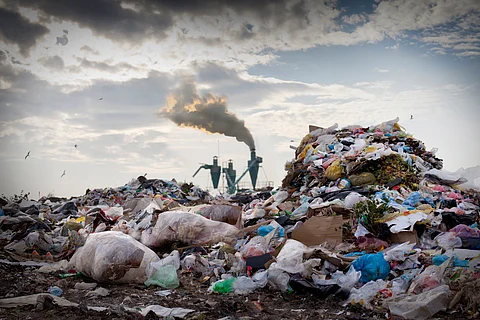

The International Finance Corporation (IFC), the private lending arm of the World Bank, has decided against investing in a proposed $40 million loan for waste-to-energy (WTE) incineration projects in Gujarat, India. The decision comes after sustained opposition from communities, environmental groups and civil society organisations who raised concerns over pollution, public health risks and financial viability.
The proposed loan was intended to support Abellon Clean Energy Limited (ACEL) in constructing four WTE plants in Rajkot, Vadodara, Ahmedabad and Jamnagar, which together would have incinerated 3,750 tonnes of unsegregated municipal solid waste daily, according to citizen group Alliance for Incinerator Free Gujarat. However, local residents and activists feared the projects would worsen air and water pollution, contribute to climate change and undermine sustainable waste management practices.
Communities affected by the proposed plants voiced their concerns through formal complaints to the IFC’s Stakeholder Grievance Response Team and a letter to the World Bank's Executive Directors in June 2024. A subsequent international campaign, backed by 174 networks and civil society organisations, called on the World Bank’s Board of Directors to reject the funding. The board’s decision was delayed twice, in July and September 2024, before IFC confirmed it would not proceed with the investment.
Community members who had been protesting against the WTE plants welcomed the IFC’s withdrawal but remained cautious about ongoing construction activities. Ker Jayendrasinh, a resident of Jamnagar in the press note by Alliance for Incinerator Free Gujarat described the IFC’s decision as an “important victory” but stressed that a complete shutdown of the plants was necessary to bring relief to affected communities.
Asmita Chavda, an activist from Ahmedabad who faced legal action for protesting against WTE projects, stated in the release: “This is the first success we have seen in the last 10-12 years. However, Abellon is still carrying out construction work. We urge other financial institutions to follow the IFC’s lead and stop funding all WTE projects in India, as they are highly polluting and a threat to public health.”
The financial viability of ACEL’s WTE projects has also been called into question. The company has reportedly suffered significant losses, with its net profit dropping from approximately Rs 11.1 crore in 2021 to a Rs 19 crore loss in 2023. Earnings Before Interest, Taxes and Amortisation (EBITDA) fell from Rs 3 crore to a negative Rs 16 crore over the same period. ACEL has also struggled to meet its loan interest payments, with a shortfall 14 times greater than the amount required by 2023.
Activists are now urging the Power Finance Corporation (PFC) and the Indian Renewable Energy Development Agency (IREDA) to reconsider their loans to ACEL, which amount to Rs 195 crore and Rs 133 crore, respectively. Shailendrasinh R. Jadeja, an environmental activist from Rajkot, said in the statement: “We welcome the IFC’s recognition of the harmful impacts of WTE incinerators, but it is crucial that PFC and IREDA recover their loan amounts and avoid funding similar projects in the future.”
Campaigners argue that instead of WTE incineration, India should focus on sustainable waste management solutions, including reducing single-use plastics, promoting waste segregation at the source and investing in decentralised waste processing.
While the IFC’s decision represents a significant victory for environmental and public health advocates, concerns remain over the continued funding of waste incineration projects by other financial institutions. Activists now hope that the municipal corporations involved will reconsider their waste management strategies and adopt more sustainable alternatives.